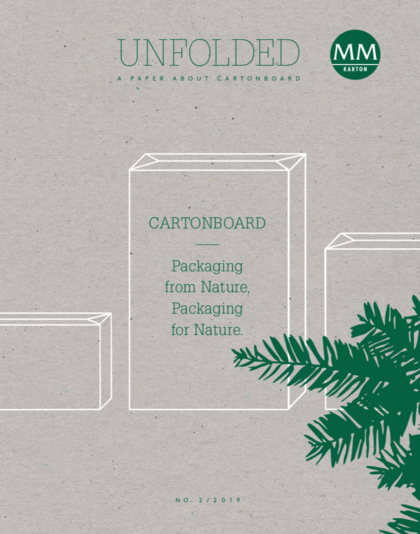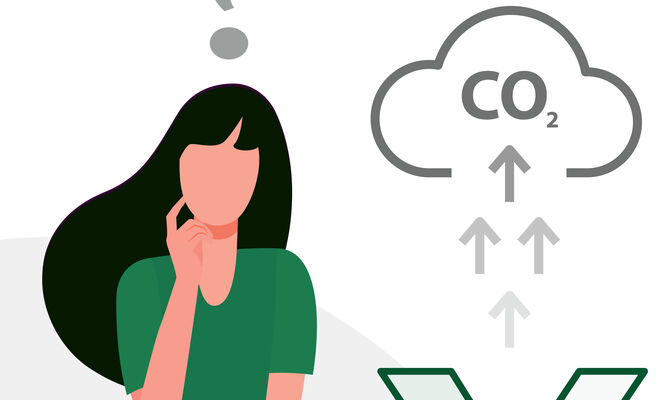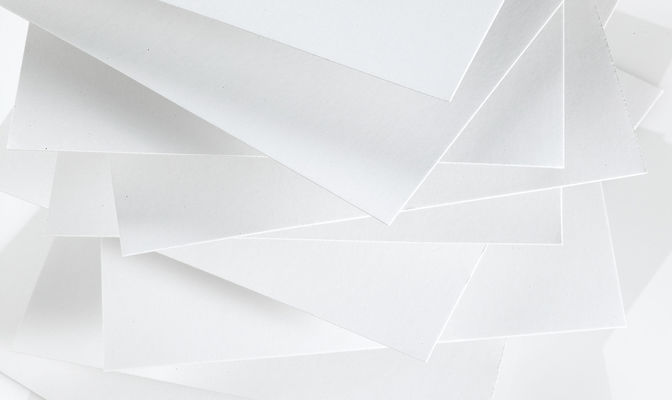Sustainability in MMK cartonboard production
09.10.2019 - Sustainability, Company / Mills
Our cartonboard product is eco-conscious: renewable, recyclable, biodegradable and climate-friendly. Mayr-Melnhof Karton puts emphasis on this factor through its responsible use of resources and ongoing optimisation of all of its systems and environment-related processes.
RESOURCES
Fibre material – recovered paper and fresh fibre
In principle, a distinction is made between reprocessed fibres in the form of recycled paper, on the one hand, and fresh fibres (cellulose or groundwood pulp), on the other. As a leading manufacturer of coated recycled cartonboard and recycled liners, recycled fibres (secondary fibres) play the biggest role for us: of the approximately 1.5 million tonnes of fibrous raw material used in production every year, roughly 75 % comes from recycled fibre and 25 % from fresh fibre from sustainably managed and controlled forests.
The stock preparation, which requires the separation and cleaning of individual fibres, is more energy-efficient for recycled fibres than it is for fresh fibres. Paper and cartonboard fibres can be recycled almost indefinitely, thus achieving a closed product cycle. The wood primarily used for virgin fibre board, especially timber from thinnings, removes CO2 from the atmosphere and ‘captures’ it. Cartonboard stores the CO2 for its entire lifespan. Functioning closed-loop circulation keeps the CO2 captive for a long time.
The renewable raw material wood used by MM Karton for the production of pulp, comes exclusively from responsibly and sustainably managed forests. Since 2009, all Mayr-Melnhof Karton mills are FSC® (MMK licence code: C003336) and PEFC certified. This brings the utmost transparency to our use of fibre material.
We produce mechanical pulp at the MMK FollaCell A.S. pulp mill in Norway and at certain selected cartonboard mills.
Energy
The production of Mayr-Melnhof Karton is fed by clear power and energy from renewable sources. Natural gas is the predominant source of energy. Modern combined heat and power units in the cartonboard mills use natural gas highly efficiently to generate steam and electricity for cartonboard production.
The other sources of energy are hydropower, the thermal use of residual material from production (rejected material and fibre sludge) and biogas from anaerobic sewage wastewater treatment.
The long-term objective of MM Karton is a sustained increase in energy efficiency and a reduction in the specific energy input per tonne of cartonboard produced. Since 2006, all of the cartonboard mills work has been ongoing to optimise production processes as part of the long-term internal ‘e.fficiency’ project. The projects include all areas of cartonboard production, from material processing and operating the cartonboard machine all the way through to equipment and the factory’s own power plants and wastewater treatment systems.
Water
Water is treated several times in an internal cycle, whereby the extracted groundwater is used first as cooling water and then as process water in several stages of production. The total water consumption is constantly being reduced through circulation switching and efficiency enhancements. The water is used several times in the production process and then cleaned and processed in modern treatment facilities before leaving the mill. All MM Karton mills employ biological water treatment.
It is vital to be clear on the difference between water use and water consumption. Most of the water is used only for a short period in production (e.g. as cooling water), before it is treated and then fed back into the cycle. Only a relatively small amount of the water used remains, either as necessary residual moisture in the product or it evaporates.
RESIDUES AND EMISSIONS
When it comes to waste management, MM Karton abides by the hierarchy of ‘avoidance before recycling before disposal’. Disposal is always carried out by authorised waste collectors, recyclers or management companies. The largest proportion of waste is made up of residual substances from recycling, for which a thermal process is used.
Exhaust air emissions
No environmentally harmful exhaust air emissions are generated in the cartonboard production process. The direct exhaust air from the cartonboard machines essentially consists of water vapour. Emissions in the form of CO2, NOx and CO mainly come from the combustion of natural gas to generate energy. As such, they are continuously monitored in line with the legal regulations in order to ensure that the threshold values are always adhered to. MM Karton strives to minimise exhaust gas emissions using the very latest technology. Energy consumption during the production process is constantly being evaluated for that purpose.
TRANSPORT AND LOGISTICS
Short delivery times, high delivery quality, delivery flexibility and an ongoing exchange of information form the pillars of our logistics approach. The strategically favourable location of our cartonboard mills in the centre of Europe is advantageous, allowing our products to be transported by rail, lorry or ship. Wherever possible, we choose rail over road.
The MultiMill concept really sets MM Karton apart in terms of efficiency and flexibility. Market-proven and highly-valued cartonboard qualities such as Multicolor Mirabell™, Excellent Top™ and MM Liner™ are produced at different sites, with consistently high quality. The continual expansion of the MM MultiMill concept aims to meet market demands.
Proven sustainability – our certifications
When we talk about sustainability as an inherent part of our corporate culture, we are not talking about a merely subjective value. Successful certifications and continuous re-certifications underscore our adherence to sustainable principles.
Our certificates are publicly available online.
Forest management – FSC® / PEFC
All MM Karton mills are certified according to the international forestry standards systems FSC® and PEFC. This enables us to provide complete verification that all wood and pulp we use come from responsible and sustainable forestry, were harvested according to legal regulations, and purchased in compliance with the principles and criteria of the respective standards.
Quality management – ISO 9001
MM Karton was one of the first companies in the cartonboard industry to receive ISO 9001 certification, which stands for active quality management. It is now the standard for all MM Karton locations.
Environmental management – ISO 14001
In mills certified according to ISO 14001, regular internal and external audits guarantee the high environmental standard. Mills which are not directly certified use internal environment management systems for continuous improvement and take advantage of the synergies of the certified locations.
Environmental management – EMAS (Eco Management and Audit Scheme)
Together with ISO 14001, EMAS (Eco-Management and Audit Scheme) forms the basis for continued assurance of integrated environmental management at Mayr-Melnhof Karton.
Energy management – ISO 50001
The ISO 50001 standard is a systematic approach to energy management. An international comparison standard serves to measure and optimize the delivery, utilization, and consumption of energy, monitor progress, and determine further energy saving potential.
Hygienemanagement – EN 15593 (HACCP)
HACCP (Hazard Analysis and Critical Control Points) certifications underscore the high hygienic standards imposed on the product and on the production itself. These requirements apply particularly to cartonboard used for food and pharmaceuticals packaging.



